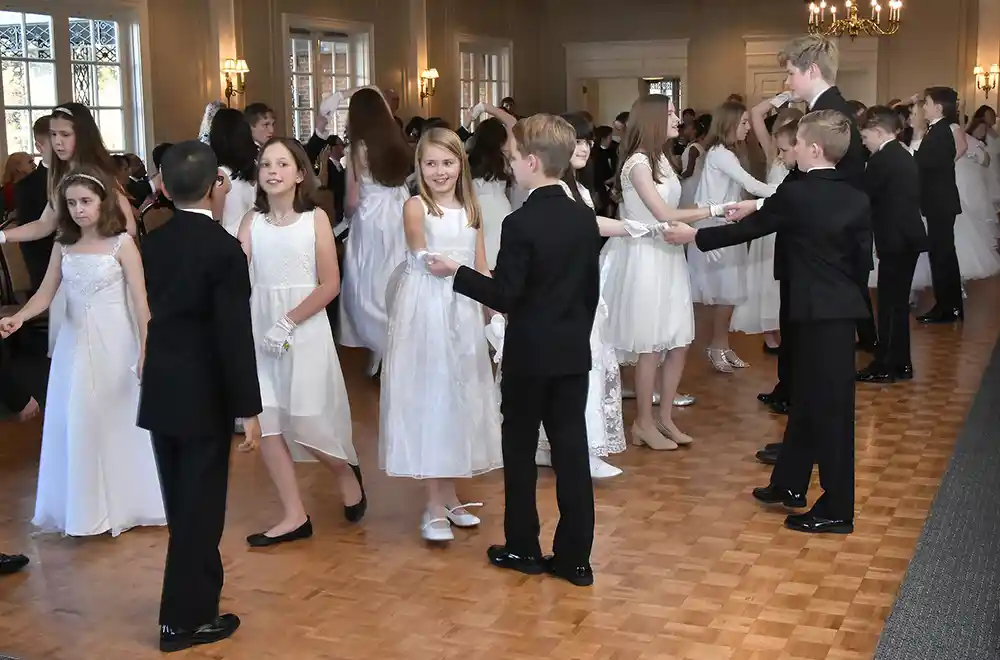
Southern charm. It’s one of the many things that attract people to the Lowcountry. For centuries, our region of the country has been known for friendliness, hospitality and manners. Of course, social etiquette and politeness certainly aren’t unique to The South. Standards of conduct are expected, if not required elsewhere, although the Lowcountry seems to have a larger dose than many other places. Visitors to Charleston often comment on that and it’s something we all take pride in having.
Consider the fact that many people here learned at an early age that much is required if they are to be welcomed into polite society where business, charitable events and social affairs have previously and still reign. Generations of young women even made an official debut when they reached the age of 18. They were introduced to their parents’ friends at tea parties, debutante balls and other gatherings. Many children of both genders attended “cotillion” classes to prepare them for such formal occasions. Originating in France in the 18th century, the term refers to a ballroom dance and has been taught to countless young people at the South Carolina Society Hall downtown.
For the last 28 years, the Mount Pleasant chapter of the National League of Junior Cotillions has offered cotillion classes at Snee Farm Country Club. But instructor Mary Kennerty said that her cotillion classes encompass more than just learning the Fox Trot. They offer elementary and middle-schoolers a whole package of social etiquette skills that will help them throughout life, such as formal table manners, tips for job interviews, conversational skills, appropriate introductions, greetings, how to handle giving and receiving compliments and much more.
“They leave here with self-confidence and a solid foundation of skills that are a prerequisite for most business and social situations,” Kennerty explained. “Ours is a copyrighted curriculum and the students get a lot from it. But classes are fun, too.”
Popular line dances and the Shag, as well as the traditional waltz are included. The program culminates with an annual formal dinner and dance.
Some folks today have turned away from traditional rules of etiquette. For example, we tend to dress more casually, introduce each other by first names and don’t always hold a door open for strangers. But what hasn’t disappeared is the need to know what is and is not appropriate behavior.
For nearly 50 years, newspaper columnist Judith Martin, aka “Miss Manners,” has been the guru of dispensing such advice. More than 200 newspapers throughout the country still carry her column. Her question-and-answer format allows readers to submit concerns, not just about how to plan a party or wedding, but to ask her take on life issues like child-rearing, workplace problems and even moral dilemmas. She has also published nearly a dozen books and for the last 25 years, has had an additional gig as a contributor to the Financial Times and the Microsoft Network.
Simply put, the world, according to Miss Manners, functions more efficiently when folks follow specific guidelines. Her supposition is that we all have to live together on this planet, so we might as well make the most of it. The prevalence of lawsuits, road-rage, public violence and bipartisan fighting only serve to eat away at the fabric of society. Today, Miss Manners is more concerned with complicated matters like these, as opposed to whether it’s okay to put elbows on the dinner table or whom to invite to a bridal shower. TIME Magazine claims Miss Manners “has helped transform etiquette from the realm of society matrons to a tool for everyday life.” The New York Times has called her columns “an impassioned plea for a return to civilized behavior.”
Obviously, not everyone is going to behave in a civilized manner. So, what do you do, for example, when someone is rude to you? Miss Manners would advise to just ignore it or respond with politeness. Lest you dismiss such simplistic advice, her philosophy is that doing so is not acquiescing or showing weakness. Rather, it’s sending a message to the offender that you won’t interact or respond to him or her in the same way you would if he or she were acting differently. Killing them with kindness might just throw them off their game.
Miss Manners professes that acceptable social behavior and manners are as easy as trying to understand the other person’s point of view. That’s something that must be taught in childhood. Of course, it may not stick when the child transitions into adulthood, but the adult will at least have learned what is socially acceptable. She insists that many Americans have embraced a false assumption that teaching manners inhibits a child’s natural personality and have therefore dispensed with it. But Miss Manners insists such training is a good thing; otherwise, we’d all assume we can act on our own instincts — which are often not a good thing. To be somewhat restrained in our behavior is what defines a civilized society.
So, maybe it’s not too late to revisit some traditions from the past when it comes to what we learned about manners as children. After all, our own good manners might even catch on.
By Mary Coy